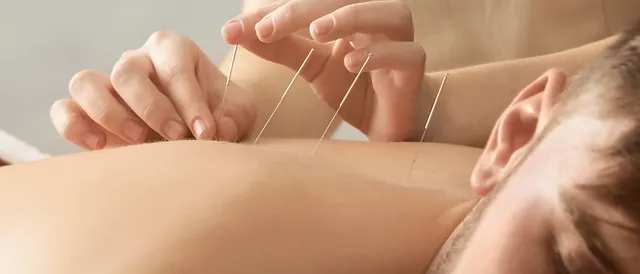Have you ever woken up with a nagging pain in your shoulder or a crick in your neck that won’t go away? If so, you might have heard about a treatment called dry needling. But before you book an appointment, a question might linger in your mind: Is Dry Needling Illegal in the USA?
The answer, in short, is no. Dry needling is not illegal in the United States. However, the legality of who can perform it varies depending on your state and licensing regulations. This lack of uniformity across the country creates confusion and fuels the ongoing debate surrounding dry needling.
Let’s delve deeper into the world of dry needling, exploring its potential benefits and drawbacks, and understand the complexities surrounding its practice in the USA.
What is Dry Needling?
Dry needling is a physical therapy technique that involves inserting thin filiform needles (similar to acupuncture needles) into taut bands of muscle called myofascial trigger points. These trigger points are believed to be hyperirritable and can cause pain in other areas of the body (referred pain).

By inserting the needle into the trigger point, the therapist aims to:
- Deactivate the trigger point, reducing pain
- Improve blood flow to the area
- Promote muscle relaxation
- Increase range of motion
States Where Dry Needling Is Illegal for Physical Therapists
If you’re a physical therapist in the US, the laws around dry needling can be confusing. Some states allow physical therapists to perform dry needling, while others prohibit it or have restrictions. As of 2021, dry needling is illegal for physical therapists to practice in five states: California, Hawaii, New Jersey, New York, and South Dakota.
Dry needling is considered an acupuncture technique in California, so only licensed acupuncturists can perform it. Physical therapists in Hawaii and South Dakota also cannot perform dry needling due to state laws. New York and New Jersey prohibit physical therapists from dry needling altogether based on their physical therapy practice acts.
Several other states have partial restrictions on dry needling for physical therapists. For example, in Georgia, Idaho, and Mississippi, physical therapists can only perform dry needling after undergoing specific dry needling coursework or certification. Other states like Arizona, Nevada, and Utah require a dry needling certification and a certain number of hours of training.
If you want to practice dry needling, check with your state’s physical therapy board to understand the rules. Some states may require additional credentials, like becoming a certified Orthopedic Manipulative Therapist (OMT) or completing a certification in Trigger Point Dry Needling (TDN).
The controversy around dry needling by physical therapists continues in many states. However, proponents argue that dry needling should be within a physical therapist’s scope of practice because physical therapists are movement system experts trained to diagnose and treat musculoskeletal conditions.
Read More
Watch Out! The Penalty for Illegal Septic Systems
The Legality of Dumpster Diving in Pennsylvania – Unearthing What You Need to Know
Is Dry Needling the Same as Acupuncture?
While both techniques use thin needles, there are key differences between dry needling and acupuncture. Acupuncture is a traditional Chinese medicine practice based on the concept of energy meridians flowing through the body. Acupuncturists insert needles at specific points along these meridians to restore energy balance and alleviate pain.
Dry needling, on the other hand, focuses on the neuromuscular system and targets specific trigger points to address localized pain. The insertion technique and rationale behind each practice differ significantly.
Is Dry Needling Bad? Pros and Cons of Dry Needling
Like any medical intervention, dry needling has both potential benefits and drawbacks.
Pros:
- Pain Relief: Studies suggest dry needling might be effective in managing pain from various conditions, including chronic neck pain, low back pain, and headaches.
- Improved Mobility: By reducing muscle tension and trigger points, dry needling can improve range of motion and flexibility.
- Faster Recovery: Some research suggests dry needling may accelerate recovery from muscle injuries.
- Minimal Downtime: Dry needling is a relatively quick procedure with minimal downtime.
Cons:
- Limited Research: More research is needed to fully understand the long-term benefits and risks of dry needling.
- Potential Side Effects: Dry needling can cause temporary discomfort, bruising, and bleeding at the insertion site.
- Improper Technique: If performed by an untrained professional, dry needling can lead to serious complications.
The Legal Landscape of Dry Needling in the USA
Now, let’s address the central question: Is Dry Needling Illegal in the USA? The answer isn’t a simple yes or no.
Here’s why:
Licensure: In the USA, physical therapists, acupuncturists, and some osteopathic physicians can perform dry needling, depending on their state’s specific regulations. Some states require additional training for dry needling, while others might restrict it to certain professions.
Scope of Practice: Each state defines the scope of practice for licensed healthcare professionals. This determines what procedures they can legally perform. In some states, dry needling might fall within the scope of practice for physical therapists, while in others, it might be reserved for acupuncturists.
Finding a Qualified Practitioner for Dry Needling
If you’re considering dry needling, it’s crucial to find a qualified practitioner who operates within your state’s legal and ethical guidelines. Here are some tips:
- Ask your doctor or physical therapist for a referral.
- Verify the practitioner’s license and confirm they can legally perform dry needling in your state.
- Inquire about their training and experience with dry needling.
Conclusion
Dry needling is a growing technique in pain management, but the question of “Is Dry Needling Illegal?” requires a nuanced answer. While not illegal itself, which can be performed it depends on state regulations. With ongoing research and evolving legal frameworks, dry needling’s future holds promise for pain management when performed by qualified professionals.
Always discuss the risks and benefits with your doctor before deciding if dry needling is right for you.

whatsapp: +92 3011050962
please contact me
How may i help you